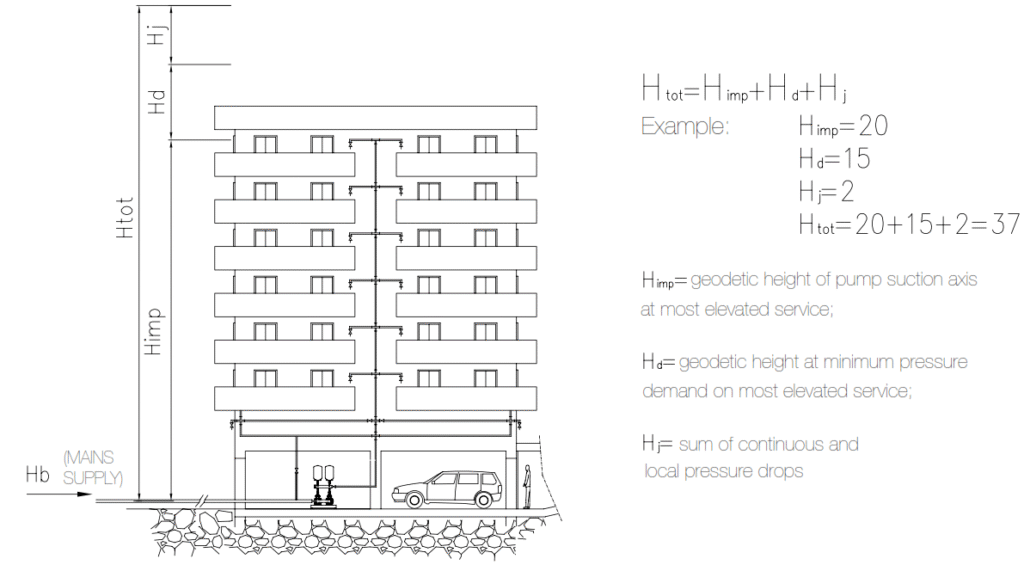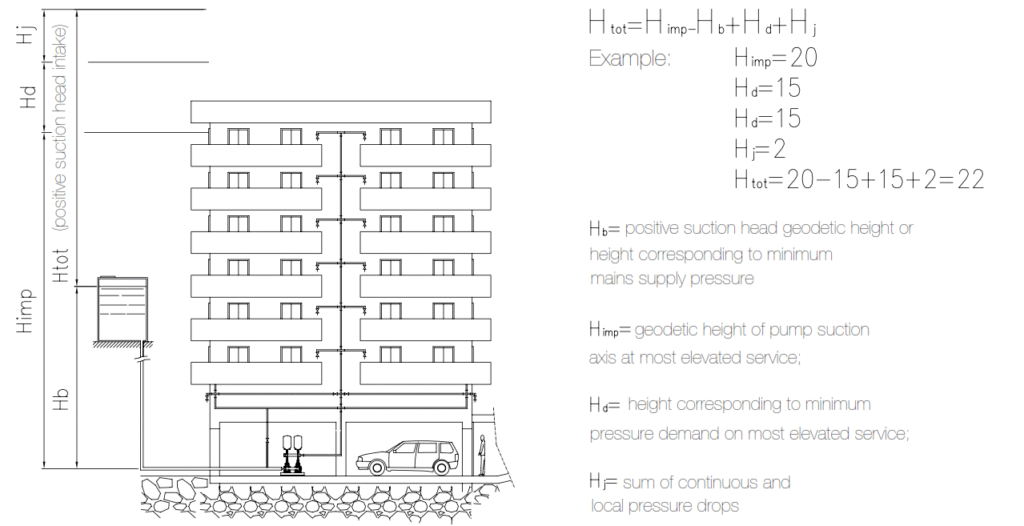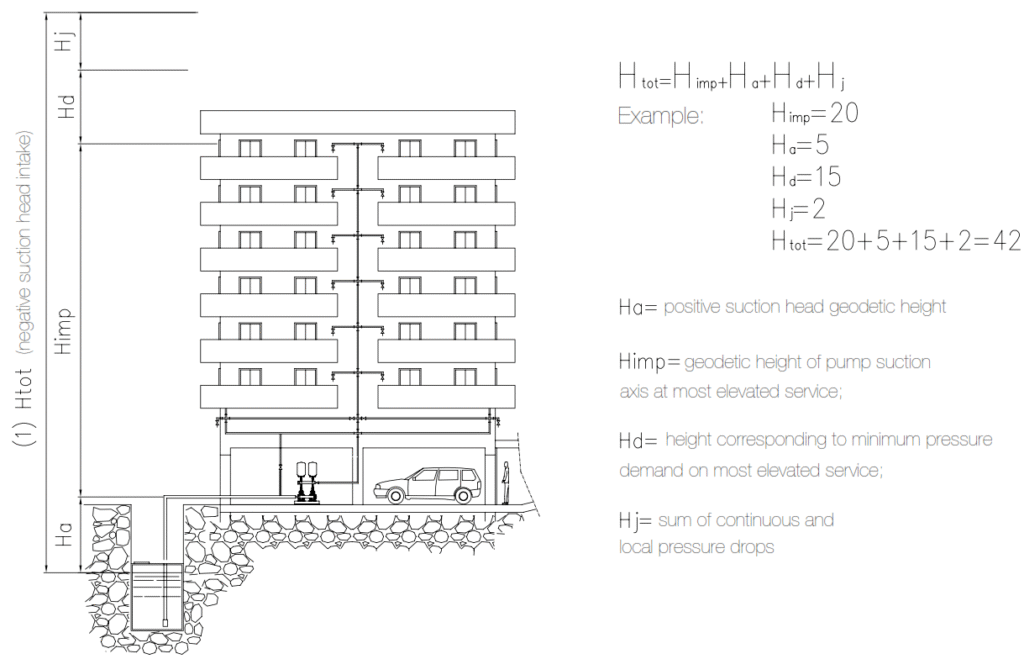Determination of the HEAD (H)
The head is the maximum total difference in level which a pump can elevate a fluid.
The head includes the level difference between the pump and the supply tank, if located at a lower level, and the difference between the pump
and the destination tank at a higher level. The route of the pipe has no effect on the total level difference, which depends exclusively on the piezometric difference in height between the surface of the supply fluid and the delivery point. The head is generally expressed in water column metres. The head of a pump is the energy per unit mass supplied by the pump to the fluid. In a closed circuit the head overcomes the pressure drops in the circuit due to friction.




Leave a Reply